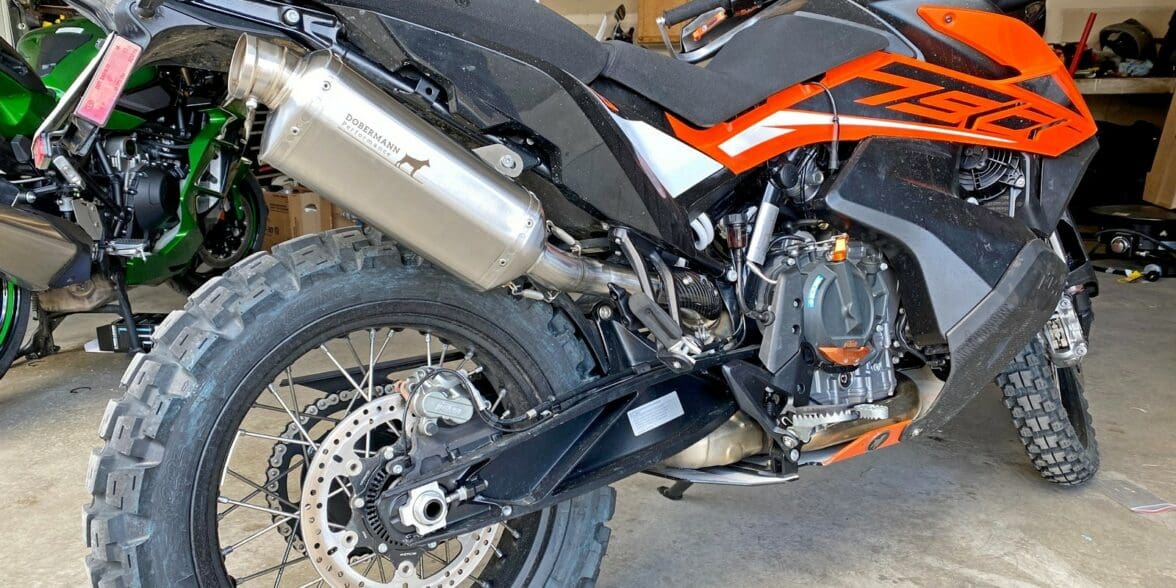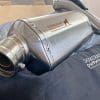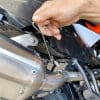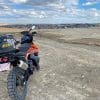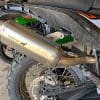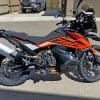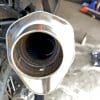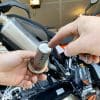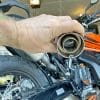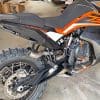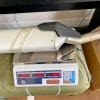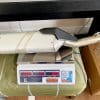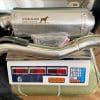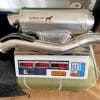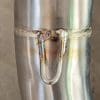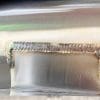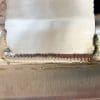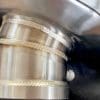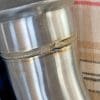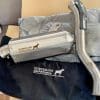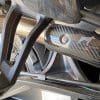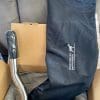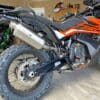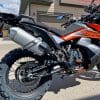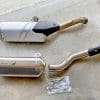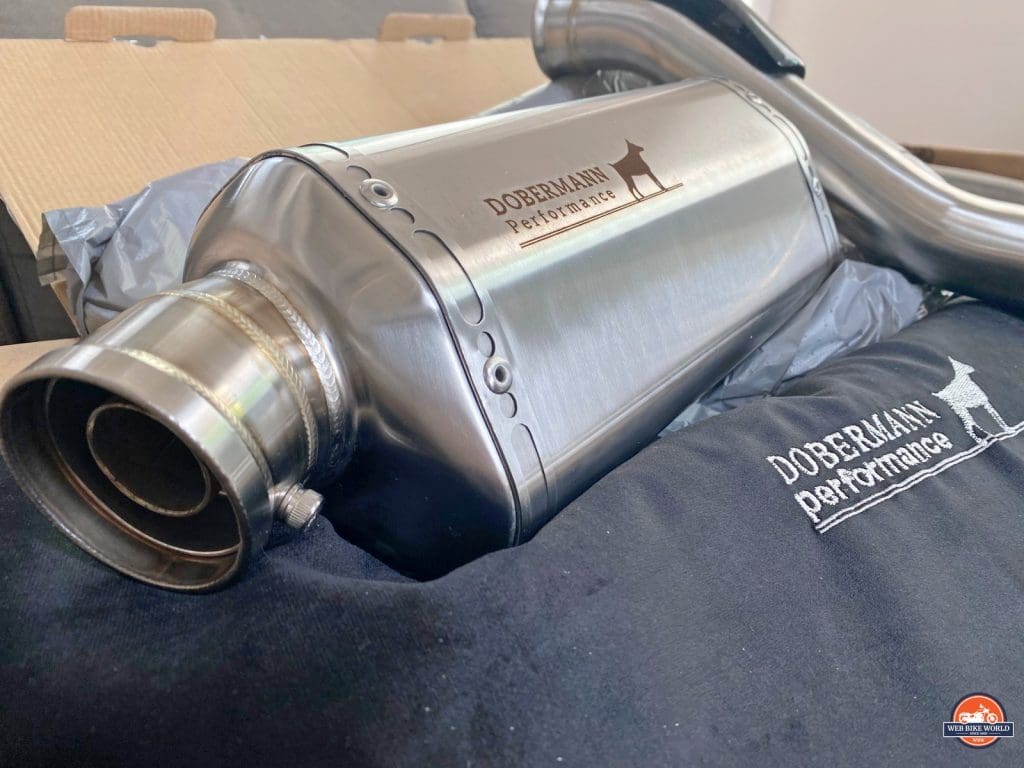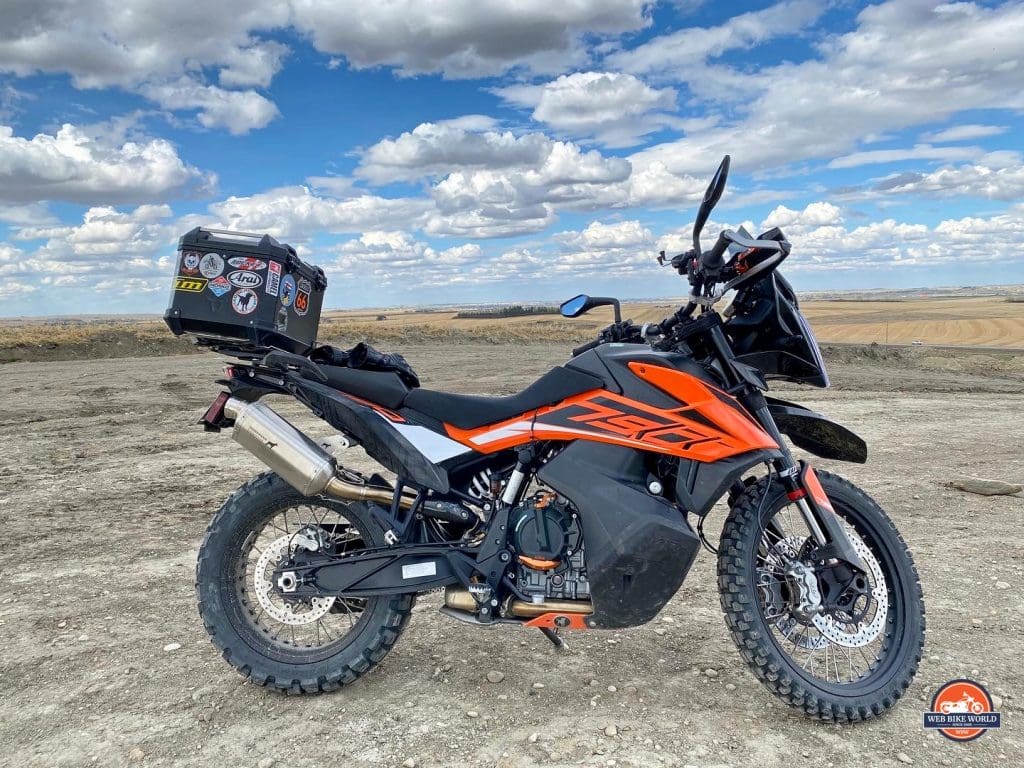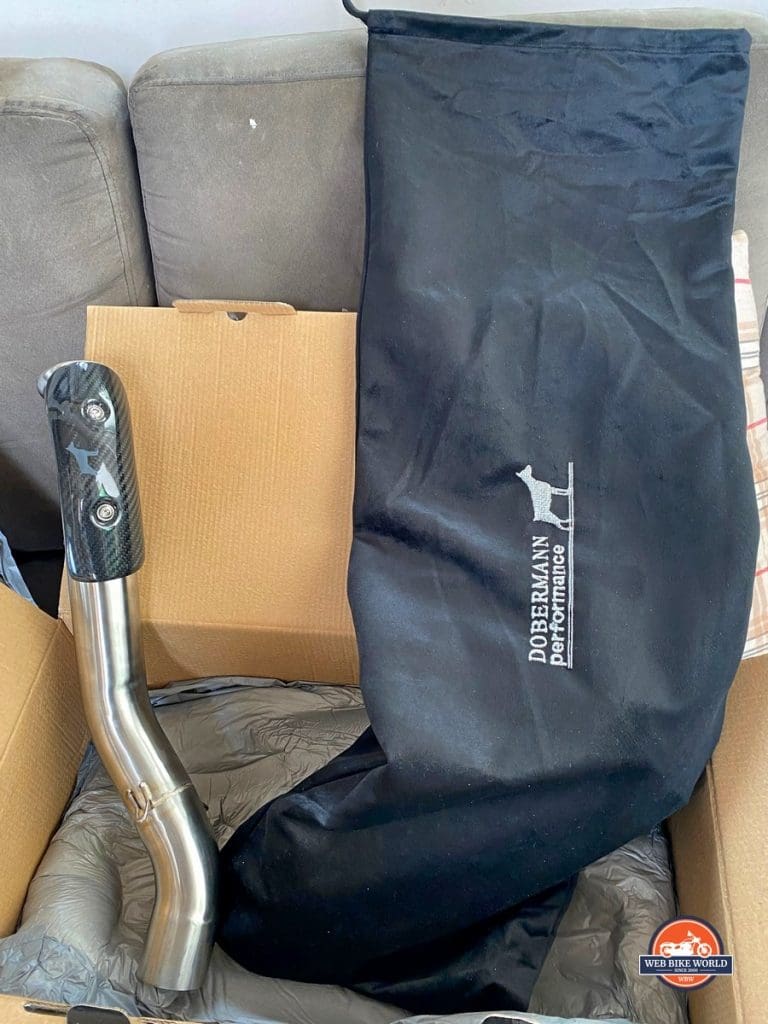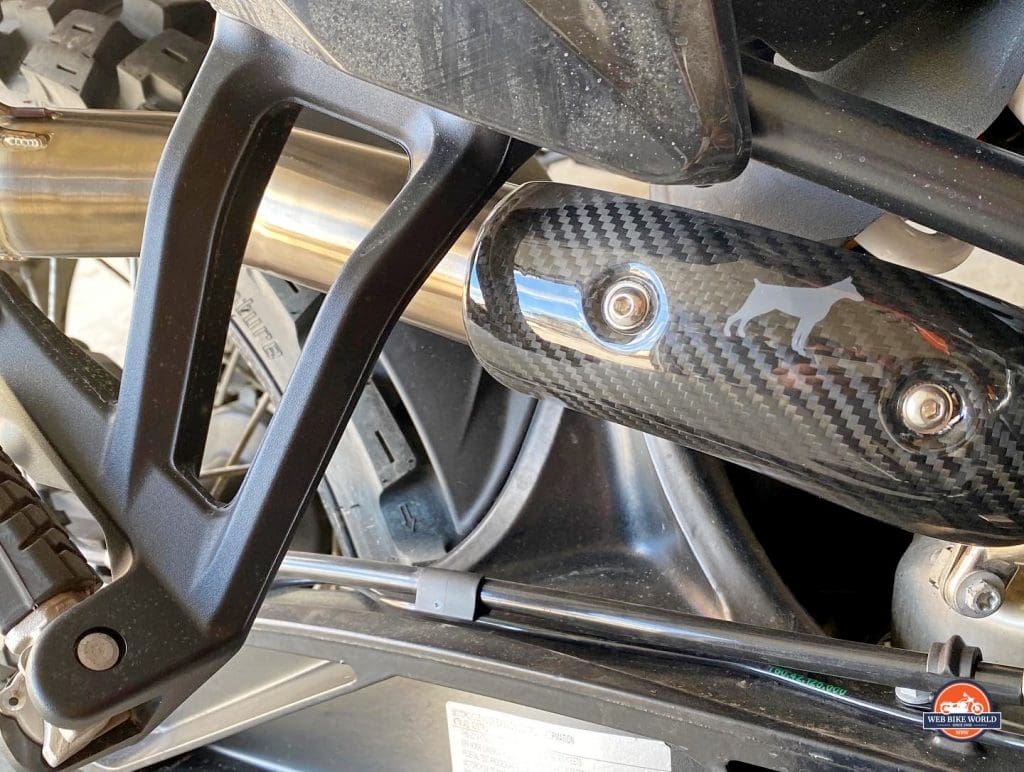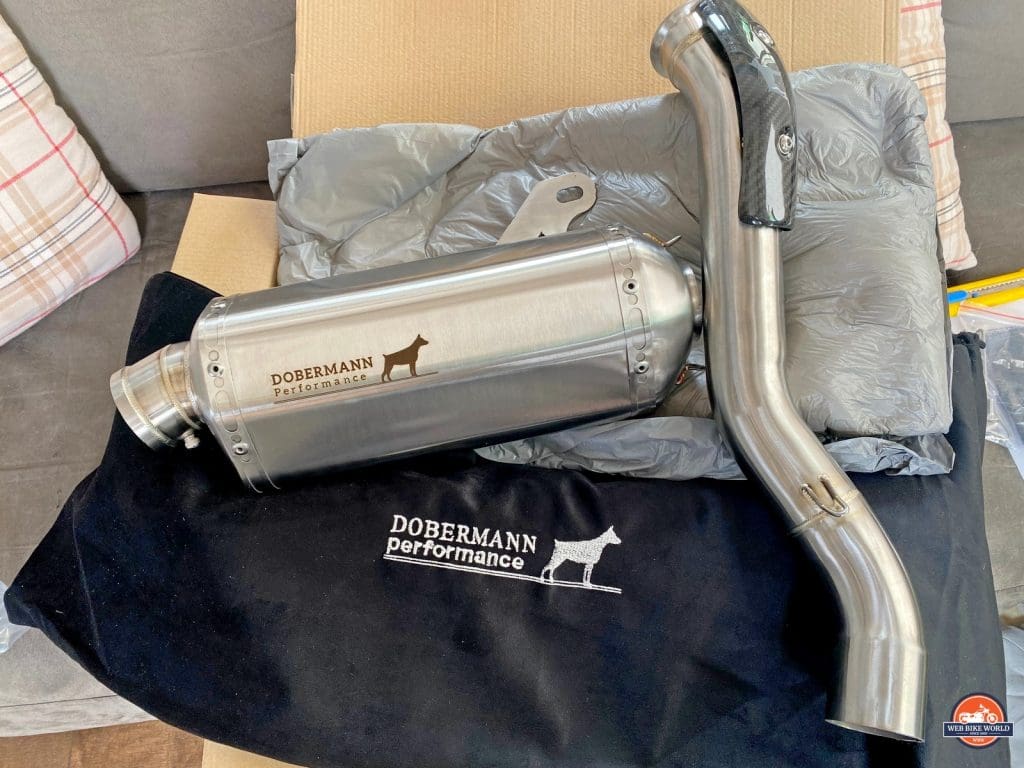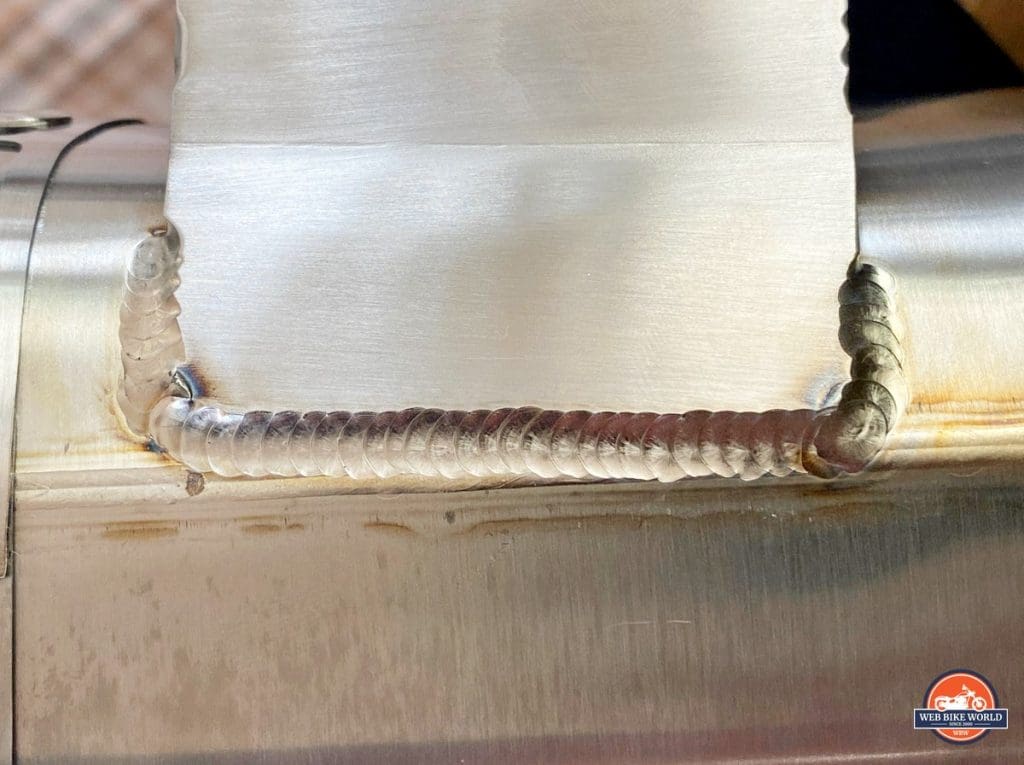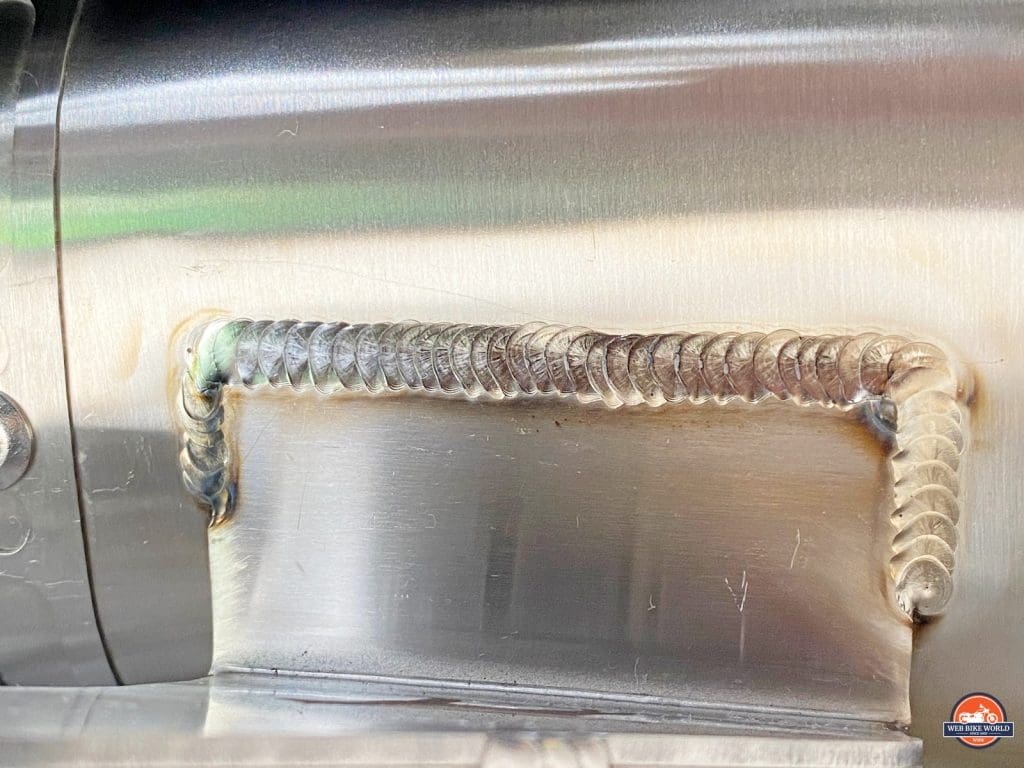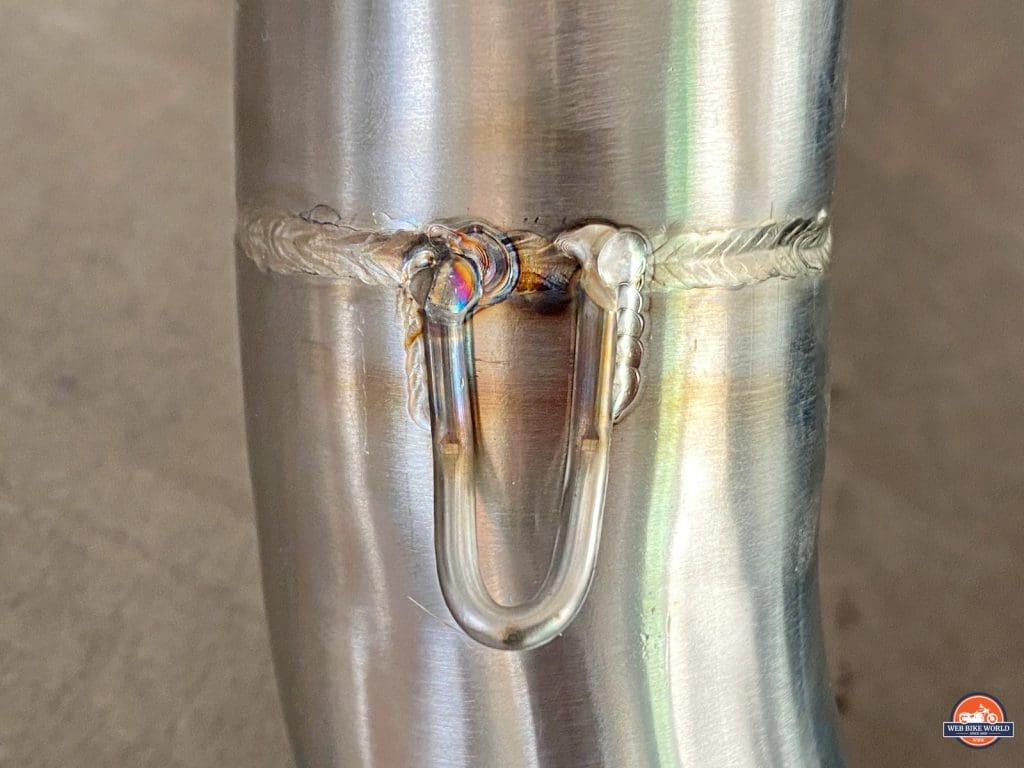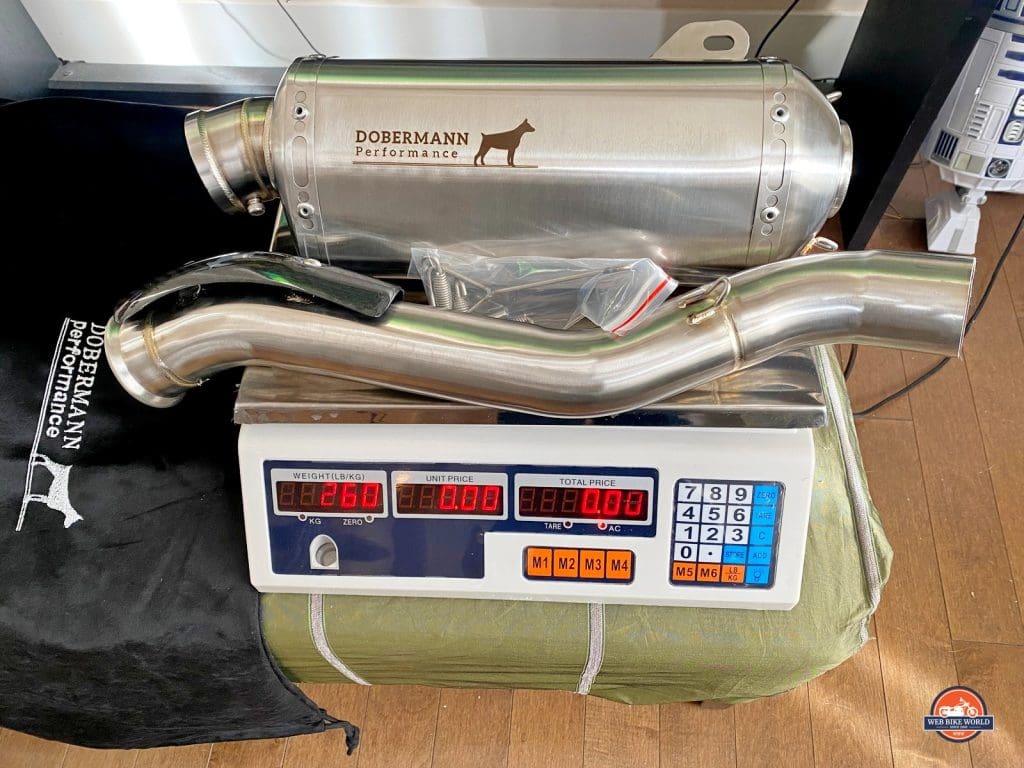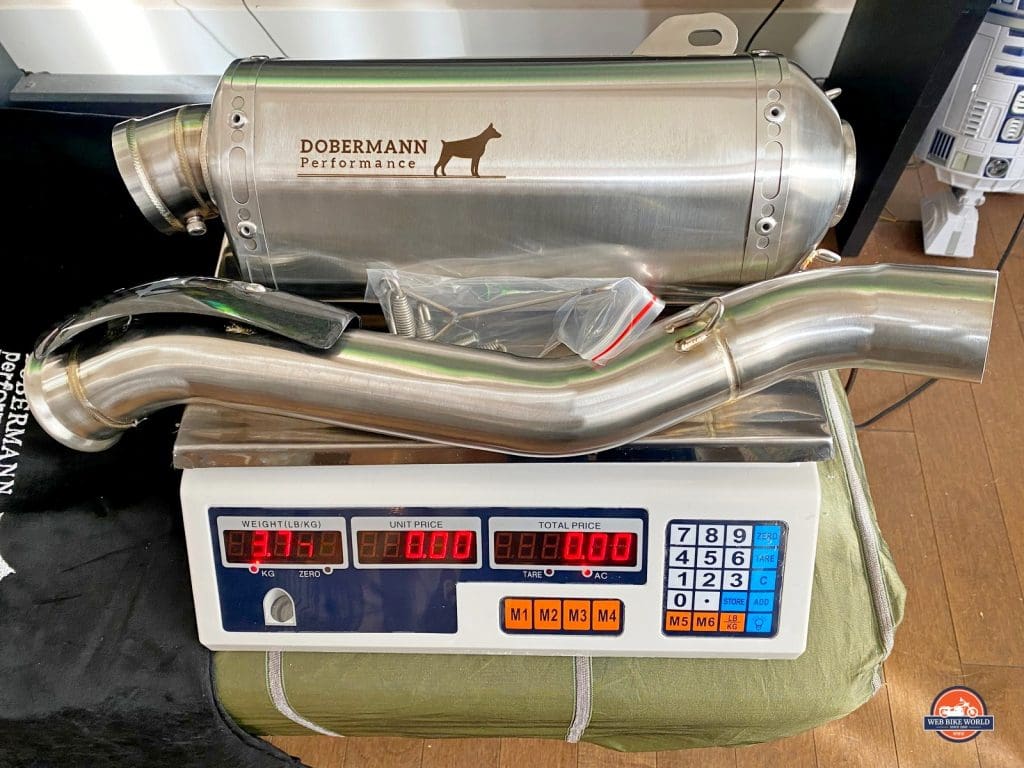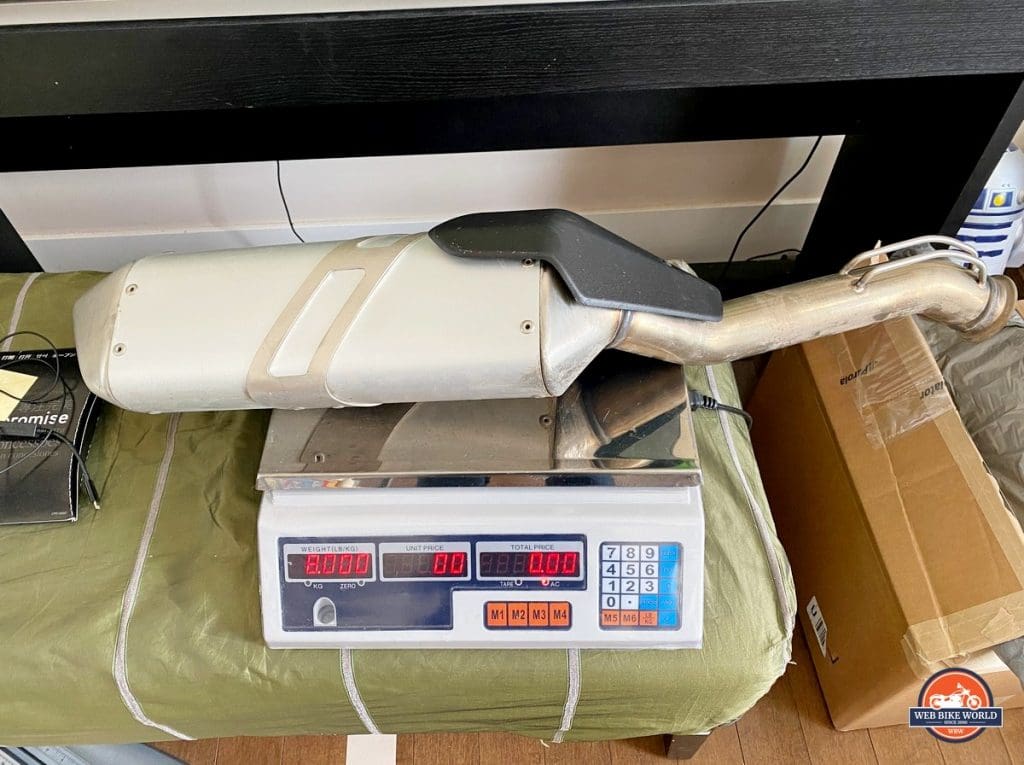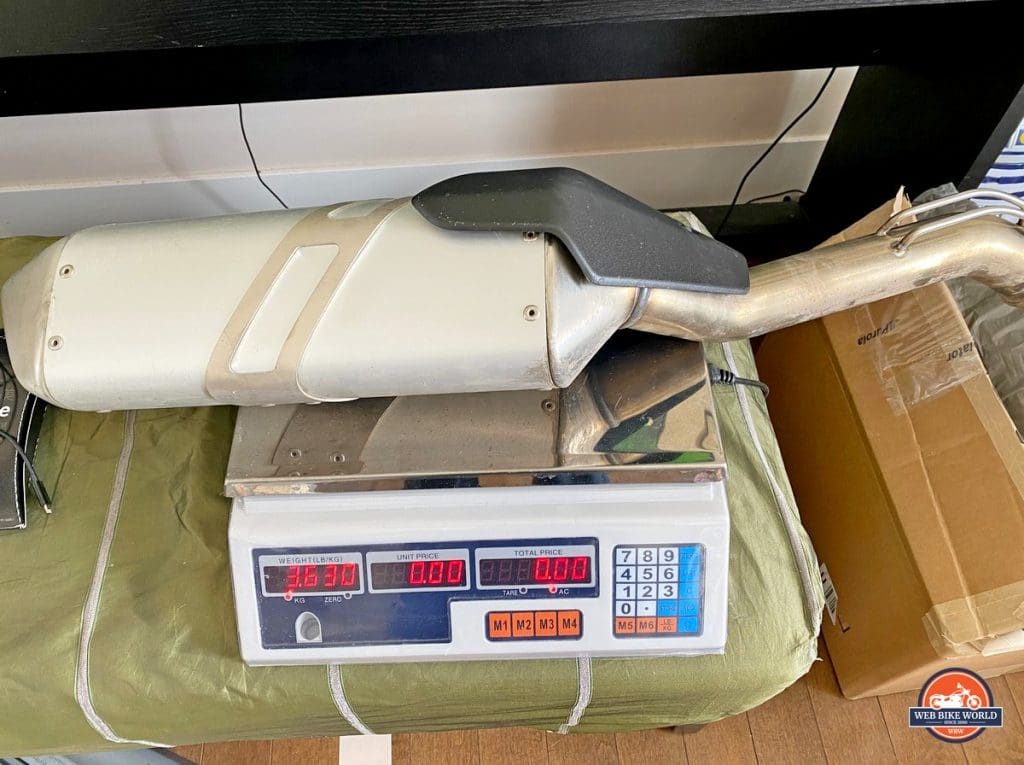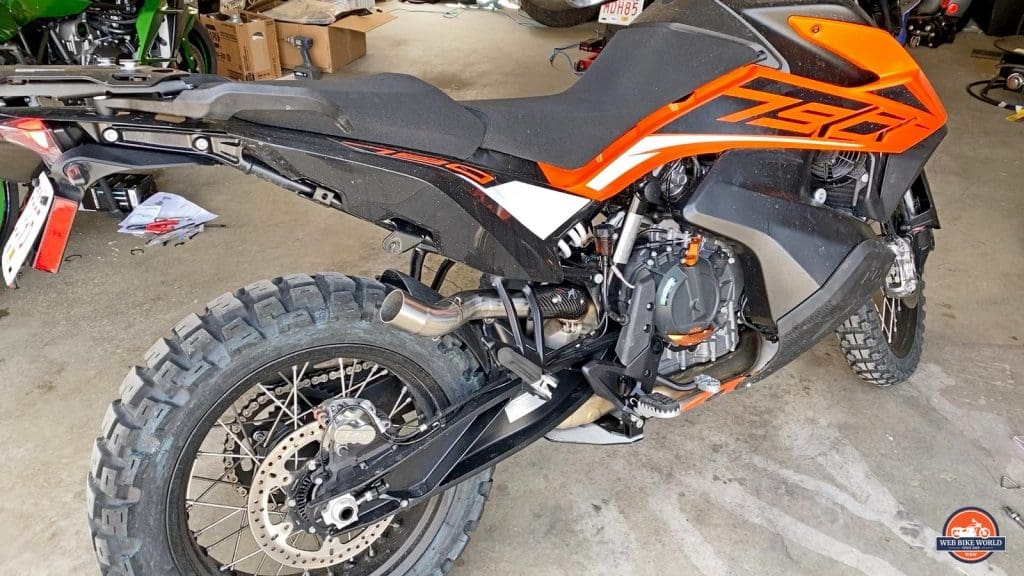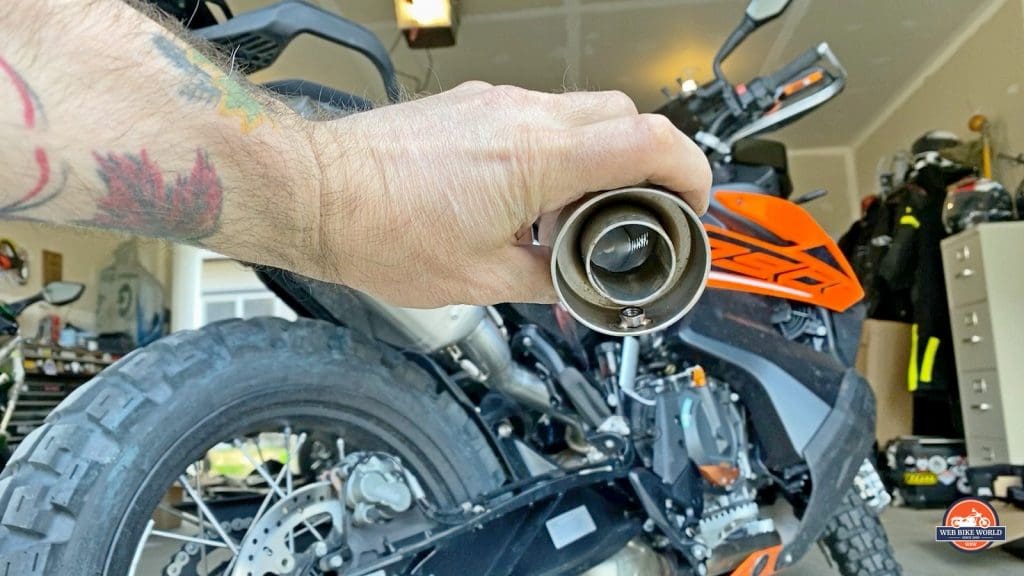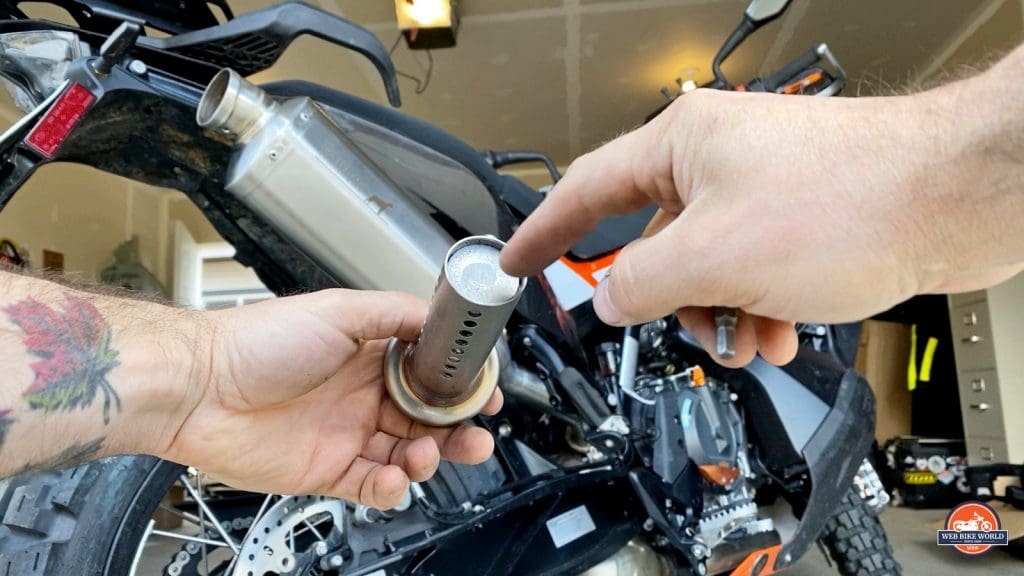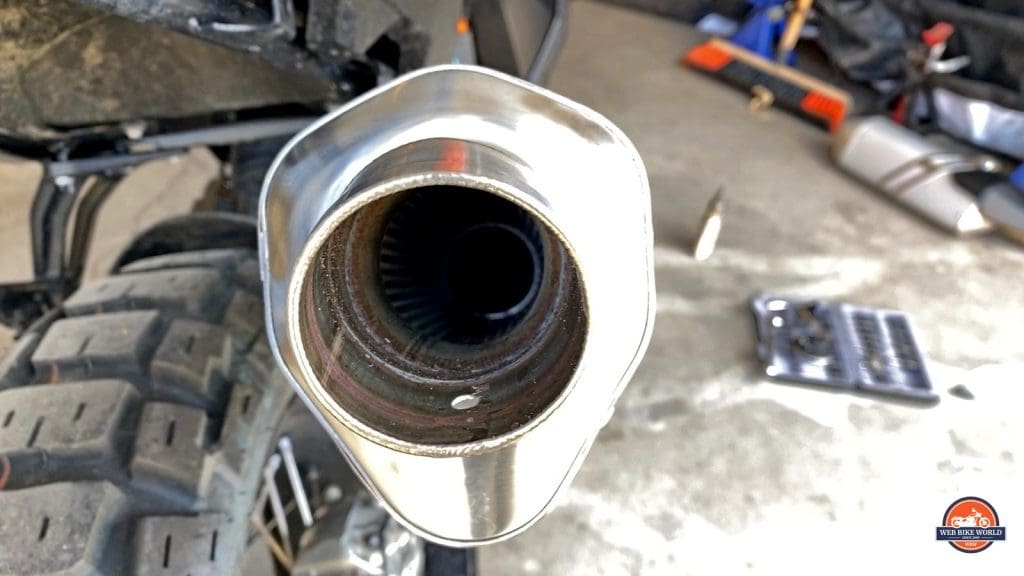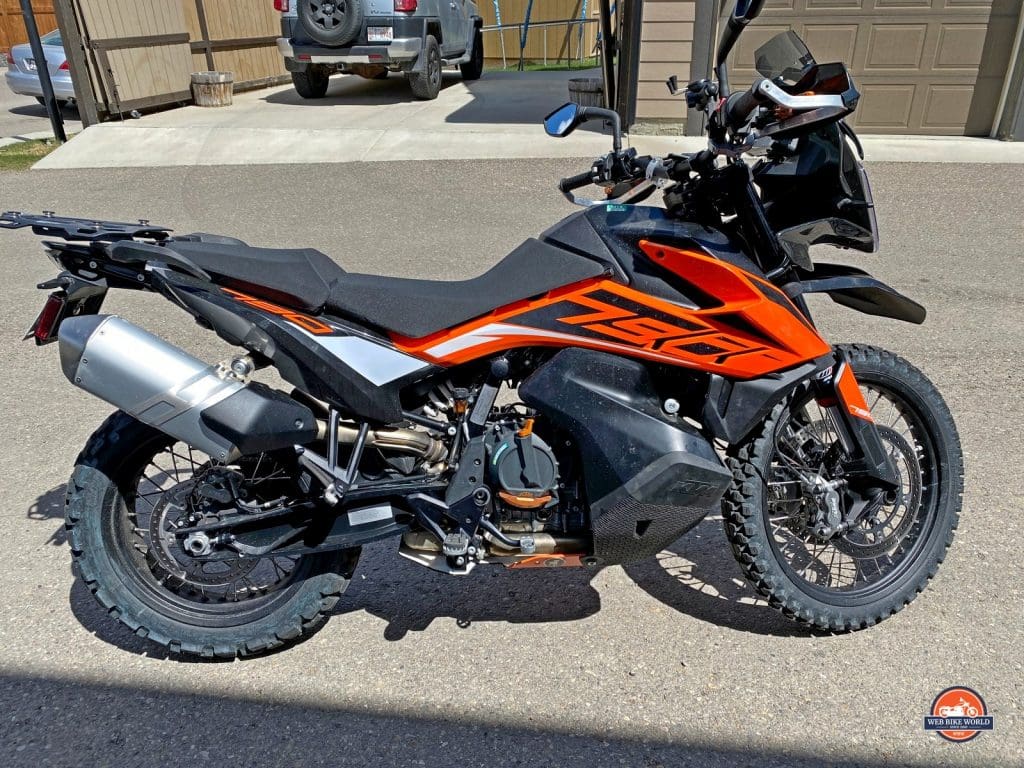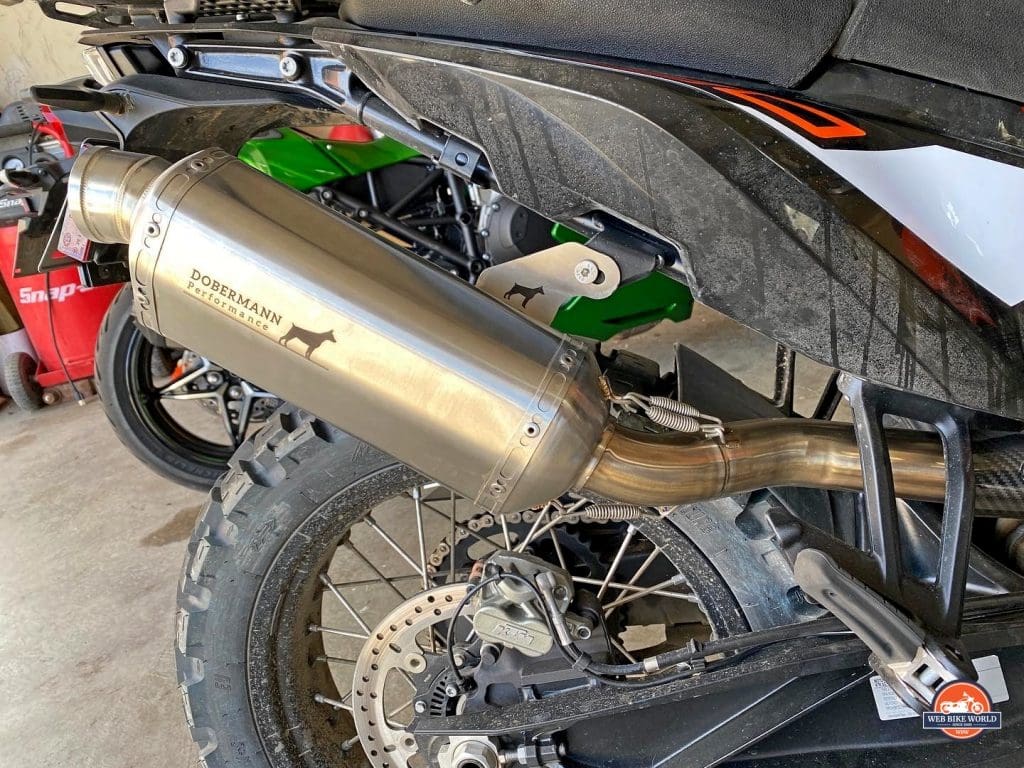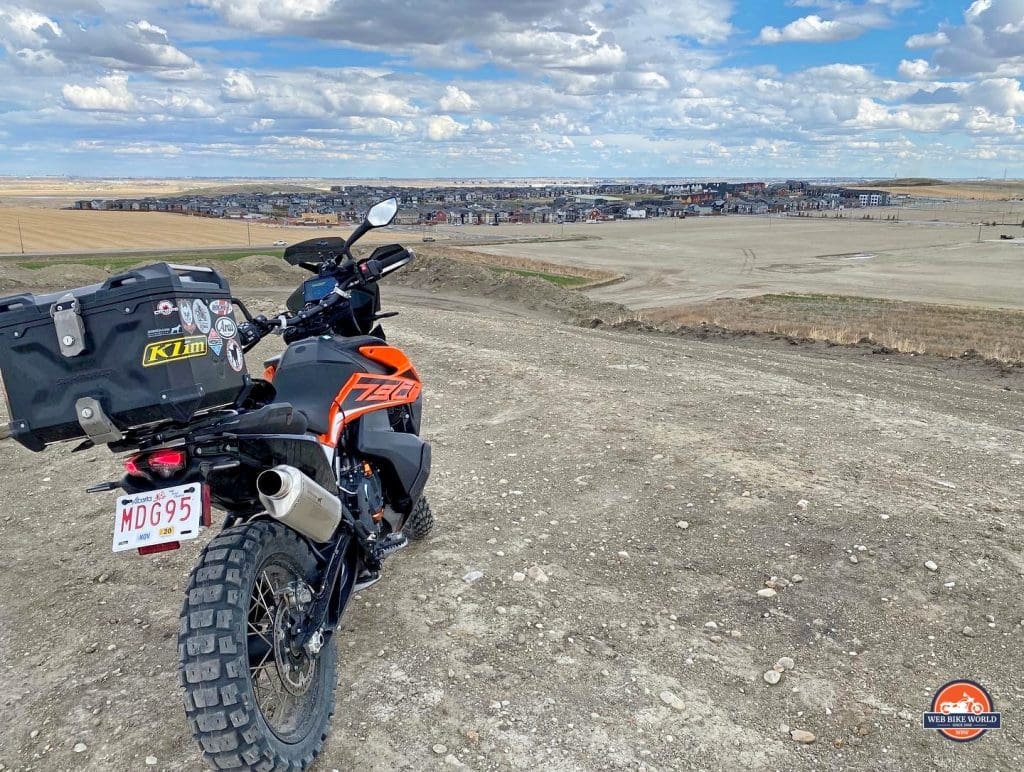Dobermann Slip-On Exhaust Has A Beautiful Bark
Why do we do it? Take off perfectly good, engine-specific built, tuned mufflers, and replace them with more expensive aftermarket ones?
If we’re completely honest about it there are four reasons why;
- Lighter weight aftermarket materials
- Smaller and better-looking products
- Slight performance improvements
- Louder and throatier sound
Weight is a consideration if you’re racing the motorcycle, or doing long tours with heavy luggage where fuel economy is a factor. I suppose in an offroad bike lighter is nicer to pick back up when you tip over too.
The Inconvenient Truth
Performance improvements are very limited when it comes to exhaust these days despite some people’s outlandish claims. Typically you’ll only see increased horsepower in the 0.5 to 1.8 range which isn’t even perceptible. Any manufacturer claiming more than that is blowing proverbial exhaust in your face, so to speak. Yes, putting on some freer-flowing exhaust and air intake components is a part of getting more power, but in fuel injected engines it’s really more about the ECU mapping these days than anything else. That or a supercharger of some sort.
So now it comes to looks and sound which I believe is the main impetus for dropping your hard-earned cash unnecessarily on exhaust “farkles”.
Enter Dobermann Performance Exhaust
The people at Dobermann Performance are honest enough with themselves and us to admit their stunningly beautiful exhaust systems won’t improve power at all. It does however excel at changing the exhaust sound thanks to a 3 level variable decibel (dB) killer.
I first saw their product on a 790 adventure group where another rider posted a proud photo of his new pipe.
I was completely smitten with the photo of such a smooth, clean muffler and quickly contacted one of the owners named Jens through the Dobermann FaceBook group to inquire about getting a sample slip-on to test with my KTM 790 Adventure.
He was more than happy to send a stainless steel (S304) model my way at no charge. It arrived at my home in Alberta, Canada in about 4 days from Denmark where they’re located which felt really quick all things considered.
Nice Aesthetic Touches
It’s clear Jens and company know their target audience. The muffler and pipe arrived in perfect condition and wrapped in a black velvet bag.
I don’t know why that pleases me, but it does. Perhaps it reminded me of the way a fine whiskey has a velvet bag sometimes?
Carbon Fiber Heat Shield
There’s a slick-looking piece of carbon fiber on the pipe that links the muffler to the catalytic converter with the Dobermann logo on it. That’s so much nicer than the aluminum one on the stock KTM pipe.
Welds
The joints and riveted portions on the muffler look flawless to my eyes and scream high-quality workmanship on the outward-facing portion of the Dobermann.
You’ll also note these near-perfect overlapping TIG welds on the end cap to give this muffler a Dakar-inspired appearance. I can’t stress enough how much skill is involved with doing this kind of welding.
That is everything I could hope for in an aftermarket look for my 790 Adventure. I’m definitely not a Dakar-worthy rider when it comes to skillset, but I can at least pose as one, right?
On the backside of the system and out of sight once mounted on the bike the welds are a little bit rougher looking as you can see in the photos below.
Asking Welders I Know About This Build
I’m not an expert when it comes to judging metal fusion and bonding via Tungsten Inert Gas, so I showed these photos to two of my friends who have been welders for many years in order to get their opinion.
James McLeod who I work with at a Caterpillar dealership for my day job agreed with me about the ones on the end cap being almost flawless but rated the rougher welds on the backside about a 6 or 7 out of ten saying the start and stop was a bit rough and the hangar clip, in particular, looked a bit weak.
Another welder friend who I asked to look at the photos said this looks like a clean welding job that was done properly and a good fit up at the mass production level of quality. He clarified that assessment further by saying there’s a big difference between judging the weld quality you’ll get from a mass-produced exhaust like this and a custom-built type.
So long story short, this is well built with a good degree of care and attention to detail for some typically mass-produced aftermarket exhaust systems.
Installation
I literally spent 20 minutes swapping the factory muffler with the Dobermann pipe. It would have been shorter except I stopped to take photos and video along the way and to stare lewdly at it from time to time. As one of my welder inspectors pointed out the fit-up was bang on and everything fell exactly into place without any tweaking, curse words, or busted knuckles.
I especially liked the inclusion of a handy spring installation tool that came with the hardware. It made what would have been tricky, easy. They included what I guess is an extra retention spring in the kit so I just doubled up on the upper spring hangar.
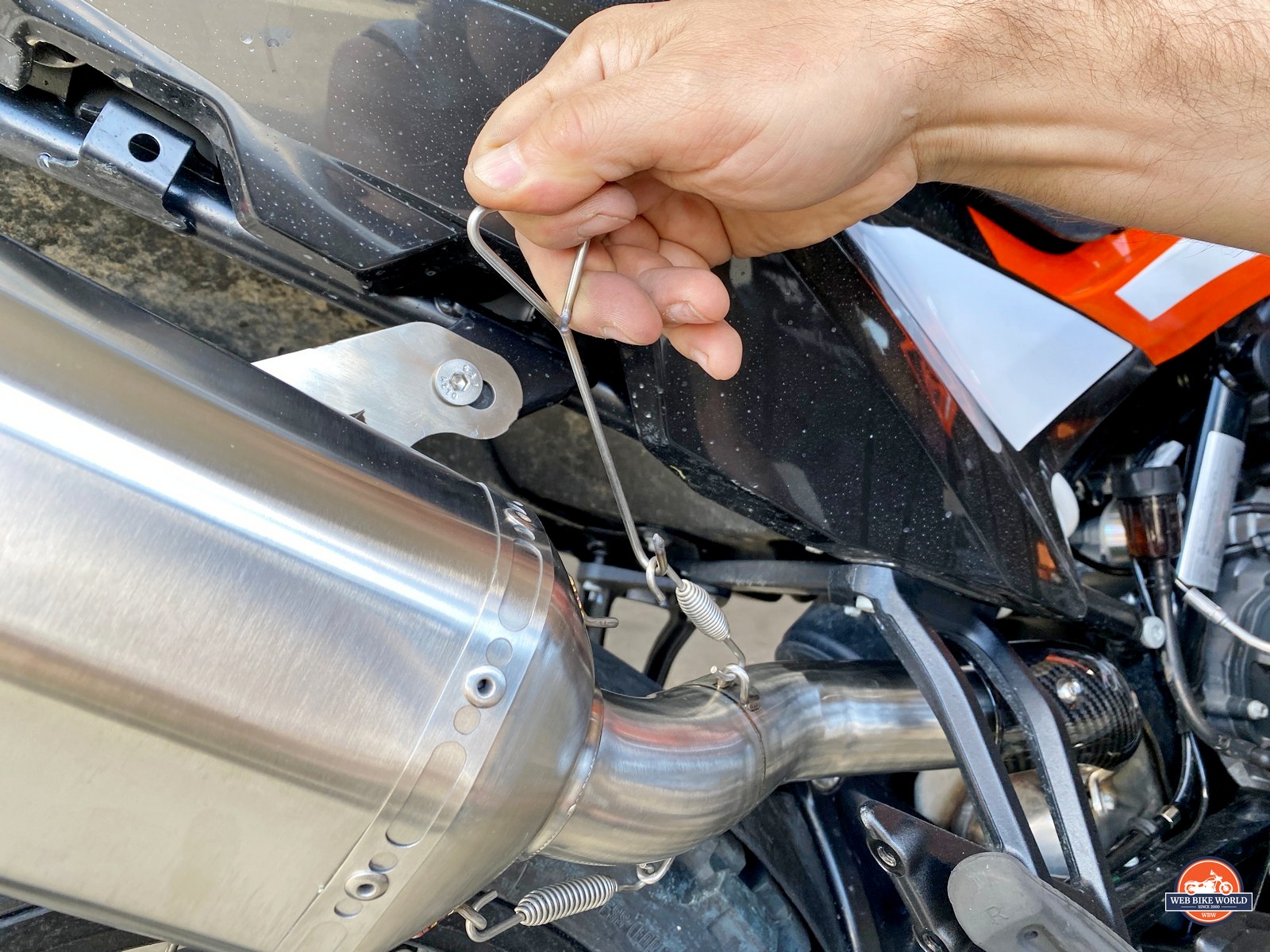


I added a small amount of blue Loctite to the upper hangar bolt to ensure it stays put.
Weight
I weighed the Dobermann system with all hardware, etc on my scale and got 3.74 kg or 8.26 lbs. The photo below isn’t showing the number 8 at the start for some reason.
Dobermann’s website says this pipe weighs 3.6kg and perhaps my leaving the fasteners in the plastic bag bumped it 0.14kg?
Interestingly, the stock muffler and pipe with over 5000 miles of run time came in a hair lighter at 3.63 kg or 8.02 lbs.
Do I really care about such a small amount of extra weight vs the KTM muffler? Not at all. I was doing fine with the stock system but let’s face it that thing is really ugly.
Once I remove the dB killer I’m sure the weight between the two pipes will be a wash anyhow, right?
The Sound
I created this thoroughly overdone video comparing the stock sound versus all three levels of the Dobermann sound.
As a bonus I recorded a clip of the sound without any muffler other than the catalytic converter. It produced an ear-splitting “FRRRAAAAAP” roar that made my dog bolt in the nearby backyard, as you might expect.
The Three Levels of Dobermann Nirvana
It shows how you can get what amounts to a slightly lower-pitched growl at the same volume than the stock exhaust by leaving in the dB killer whole as it came from factory.
The second level involves removing a small plug from the dB killer to increase the volume while pitch stays about the same.
The final stage is the complete removal of the dB killer, yielding a louder, sharper, and lower growl complete with a BARK that strikes a beautiful chord in my heart.
The Bark On Quickshift Blips
The bark comes each time I shift gears using my quickshifter option on the 790. The engine auto-blips the throttle so quickly that there’s a quick backfire. It’s just absolutely lovely to hear.
I’m going to be leaving it like this until I eventually remove the catalytic converter at which time I believe I’ll reinstall the dB killer minus the round plug to get an even better exhaust note.
It Can Take The Heat
I wondered whether the main difference between this exhaust and the OEM would be heat-related.
It turns out that the muffler is insulated just as well as the factory muffler and it never really gets so hot as to be able to burn my hands even after a long ride. I don’t notice any increase in the amount of projected heat off the exhaust on my legs or otherwise either.
Passenger Concerns
The black shield found on the factory exhaust to protect a passenger’s right leg isn’t found on the Dobermann and could be a concern. I haven’t had a passenger on the bike since the swap to know for sure but it does get plenty hot in the area.
This could also become a factor when I install my soon to be tested Mosko Moto Reckless 80 v3.0 Revolver luggage. Mosko Moto includes a heat shield for the muffler with their kit because other bikes have melted their wares before.
Branding Is Holding Up Nicely
The laser-engraved Dobermann branding on the muffler has held up against almost 600 miles of testing now, refusing to fade away or rub off when washed. Ditto for the carbon fiber heat shield down by the cat.
Blueing?
I expected this pipe to take on a purple and blue tone, but thus far it’s only gone from a silver stainless steel color to a pretty bronze or brass tint. Maybe it just needs more time and temperature to go blue? We shall see.
Perhaps if I ran it with the dB killer installed it might heat up more and turn blue?
Final Verdict?
This is a lovely pipe with terrific sound options for only $395 USD. That’s very good compared to other exhaust systems that look and sound this good. There haven’t been any exhaust leaks, strange vibration issues, or any other failures/problems with the product thus far. I’ll update this post if that changes.
The bike now sounds a lot like a high revving V-twin engine rather than the inline twin that it is. I love that! I can also hear it better at any speed to better gauge what gear I’m in without having to glance at my dash.
If you prefer a lighter version of this exhaust system it’s available from Dobermann made out of Japanese quality titanium for $675 USD and weighs a claimed 2.3 kg or only 5.07 lbs.
I’m thoroughly enjoying mine and want to thank the people at Dobermann for sending it my way.
What’s Next?
As I mentioned I’ll be playing around with removing the catalytic converter to see how that sounds with this and hopefully another 790 exhaust review to share with you, but that’s another story.
Pros
Cons
Specs


